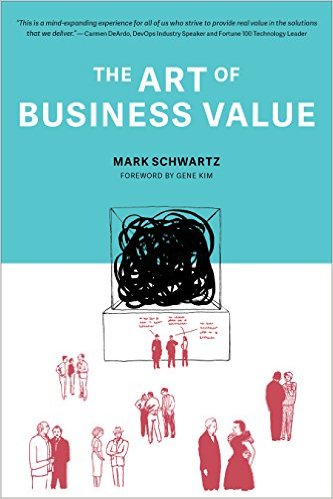With more than a hundred cities with over a million people (compared to 9 in America), China’s potent workforce is poised to send shock waves of change throughout the global economy. In his book, China, Inc.: How the Rise of the Next Superpower Affects America and the World, Ted C. Fishman provides details about this growing superpower and the historical narrative that has launched China into the forefront as a global economic powerhouse.
The people of China are strong, highly motivated and extremely agile. This work ethic coupled with an entrepreneurial rise is creating an emerging market of consumers as well as producers. If the seeds of liberty, determinism and success continue to grow, China could easily become the largest economic superpower on the planet. While this economic capitalism seems to run against the rules of communism, the Chinese have adopted a brand of socialism that, in their own words, contains “Chinese characteristics.” This phrase has become the permissive clause within the Chinese government and the society in general.
As Ted Fishman points out in this book, China is acquiring the most advanced technologies on the planet. These gains are not coming by way of vast research and development budgets, innovative scientist or even the brute force of hard work. No, these advances are being imported as companies all over the world are relocating their manufacturing floors to China soil. By doing so, these companies are able to reduce their production expenses and pass this on to the consumer at a lower cost, often called “The China Price”. However, as these firms make agreements with local private or state run industries, the technology involved in the product, the manufacturing, or the quality processes are being distributed and copied by other Chinese companies. Naturally, these companies have lower overhead than their foreign benefactor and are therefore able to produce the same product and quality at an even greater reduced price. Companies like General Motors or Boeing will find their latest model on China’s roads or airways at a lower cost and with a different brand name.
The concept of intellectual property has driven the success of western capitalism and produced innovative phenomenon and economic success. While not completely ignored by the Chinese government, it is clear that there is very little interest or ability to police such rights within China. As an example, Microsoft has found that in China, 9 out of 10 copies of their software products are installed illegally. Pirated software, music and movies are available often within hours of being released. While the government does make some attempts at controlling this underground industry, the truth is that the Chinese have very little moral or ethical motivation to maintain boundaries to protect copyrights, patents or other intellectual property rights. This seems to be a product of the environment and historical mindset devoid of familiar western political and Judeo-Christian values. Unfortunately, this manifests itself in the form of innovative and creative anemia. Students, scientist or even entrepreneurs are not compelled to invent new products, concepts or procedures since whatever they create would be copied and produced without providing them any credit or profit. If there is no benefit in expending mental or physical energies, why do it? I believe that unless this changes, this will eventually be a glass ceiling for the Chinese economy.
Can we have open trade with China and therefore increase our global competitive advantage? If the playing field was level, I believe that the world would benefit by open trade with all countries. However, the field is not level. The workforce in China is willing to work in conditions that are centuries old, dangerous, and unhealthy. Their factories are not subject to regulation that helps protect the customer, employee or environment. It is clear that these operations cannot continue and will in fact be required to address conditions and behavior that destroys people and the planet, similar to what occurred during the American industrial revolution. Unfortunately, until this occurs, industrialized countries that have already addressed this stewardship will find competition with China to be an extreme challenge.
China would not continue to grow at its amazing rate without foreign appetite for its exports, especially American consumers. To help with this, the Chinese government keeps its currency, the Yuan, pegged to the US dollar so that it continues to be at a lower price. This means that Chinese consumers are dealt a currency that could otherwise buy more for them in the global market. Fishman says, “…the people of China, who earn on average just one-fortieth what Americans do, are indirectly subsidizing the insatiable shopping of Americans, who acquire ever more goods at the same time that Chinese consumers are hampered from buying goods from abroad. / The obverse of this peculiar relationship is that China lends America all the money it needs to spend itself silly.” (p 264)
According to Fishman, China owned a $480 billion stake in the U.S. securities market in 2004 (of the $2.2 trillion owed to foreigners). This was at a time when the American government’s debt was growing at a rate of $1.7 billion a day (reaching a total of $7.5 trillion). American have used the record low interest rates to spend more rather than refinance and reduce debt burdens. The US government was doing the same. Fishman says,
Rather than use the period of low interest rates to pay off national debt and keep annual budgets in balance, as the Clinton administration did, the Bush administration set record budgets, slashed taxes, and ran up record budget deficits so big that paying off the national debt may never be possible. The people of China are financing that profligacy. (p 265)
China has definitely entered the world stage as a economic powerhouse and will continue to be a major player in the global dynamics that politicians, businesses and workers will continue to face.
Google Preview of China, Inc.:
http://books.google.com/books?id=_9a-BAeeDzgC&printsec=frontcover#PPP1,M1
NPR Interview with Ted Fishman:
http://www.npr.org/templates/story/story.php?storyId=4497020
 A review of The Art of Business Value by Mark Schwartz
A review of The Art of Business Value by Mark Schwartz

